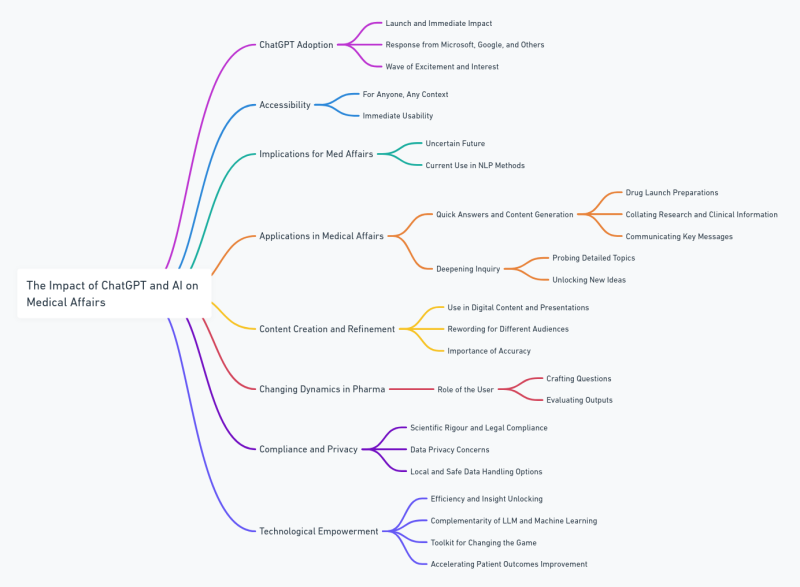
The use of ChatGPT in Medical Affairs, as outlined in Hywel Evans's IQVIA blog, opens a new frontier in healthcare communication and information management. Beyond the blog's initial discussion, it's fascinating to consider how ChatGPT could revolutionize patient engagement and education. By offering personalized responses, ChatGPT can cater to individual patient needs, providing tailored information about diseases, treatments, and wellness strategies.
Moreover, ChatGPT's ability to process and synthesize vast amounts of medical literature could significantly enhance the efficiency of medical research. Researchers could use ChatGPT to summarize current studies, identify gaps in knowledge, and even generate hypotheses for new research, thus accelerating the pace of medical innovation.
In drug development and launches, ChatGPT's role could extend to analyzing patient feedback and experiences, offering insights into drug efficacy and side effects. This could lead to more patient-centric drug development strategies and improve post-market surveillance.
The ethical and privacy considerations, however, are paramount. Ensuring data security and patient confidentiality while using AI in healthcare requires rigorous standards and protocols. Furthermore, the accuracy of ChatGPT's medical information must be constantly monitored and validated by medical professionals to avoid misinformation.
In conclusion, while ChatGPT presents exciting opportunities for Medical Affairs, its implementation must be guided by ethical considerations, accuracy, and a commitment to enhancing patient care.
For a more comprehensive understanding, you can read the original article by Hywel Evans on IQVIA's website: What could ChatGPT mean for Medical Affairs?.



Add comment
Comments